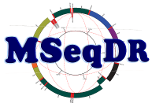| Input | HPO ID | HPO term | Distance | Gene | Gene id entrez | HGNC ID | DiseaseId | DiseaseName | Frequency | Onset | HGMD variants | ClinVar variants |
|---|
HPO disease - gene - phenotype typical associations: |
HPO disease - gene - phenotype less frequent non-typical associations: |
| HP:0030842 | HP:0030842 | Choking episodes | 0 | AGRN CL E G H | 375790 | 329 | ORPHA:98914 | Presynaptic congenital myasthenic syndromes | HP:0040282 - Frequent | | | 127 | | |
| HP:0030842 | HP:0030842 | Choking episodes | 0 | CACNA1A CL E G H | 773 | 1388 | ORPHA:98758 | Spinocerebellar ataxia type 6 | HP:0040282 - Frequent | | | 449 | | |
| HP:0030842 | HP:0030842 | Choking episodes | 0 | CHAT CL E G H | 1103 | 1912 | ORPHA:98914 | Presynaptic congenital myasthenic syndromes | HP:0040282 - Frequent | | | 65 | | |
| HP:0030842 | HP:0030842 | Choking episodes | 0 | COL13A1 CL E G H | 1305 | 2190 | ORPHA:98914 | Presynaptic congenital myasthenic syndromes | HP:0040282 - Frequent | | | 6 | | |
| HP:0030842 | HP:0030842 | Choking episodes | 0 | HTT CL E G H | 3064 | 4851 | ORPHA:399 | Huntington disease | HP:0040283 - Occasional | | | 12 | | |
| HP:0030842 | HP:0030842 | Choking episodes | 0 | MYO9A CL E G H | 4649 | 7608 | ORPHA:98914 | Presynaptic congenital myasthenic syndromes | HP:0040282 - Frequent | | | | | |
| HP:0030842 | HP:0030842 | Choking episodes | 0 | PLA2G6 CL E G H | 8398 | 9039 | ORPHA:35069 | Infantile neuroaxonal dystrophy | HP:0040284 - Very rare | | | 133 | | |
| HP:0030842 | HP:0030842 | Choking episodes | 0 | SCN4A CL E G H | 6329 | 10591 | ORPHA:99734 | Myotonia fluctuans | HP:0040284 - Very rare | | | 263 | | |
| HP:0030842 | HP:0030842 | Choking episodes | 0 | SLC18A3 CL E G H | 6572 | 10936 | ORPHA:98914 | Presynaptic congenital myasthenic syndromes | HP:0040282 - Frequent | | | 2 | | |
| HP:0030842 | HP:0030842 | Choking episodes | 0 | SLC25A1 CL E G H | 6576 | 10979 | ORPHA:98914 | Presynaptic congenital myasthenic syndromes | HP:0040282 - Frequent | | | 28 | | |
| HP:0030842 | HP:0030842 | Choking episodes | 0 | SLC2A3 CL E G H | 6515 | 11007 | ORPHA:399 | Huntington disease | HP:0040283 - Occasional | | | 1 | | |
| HP:0030842 | HP:0030842 | Choking episodes | 0 | SLC5A7 CL E G H | 60482 | 14025 | ORPHA:98914 | Presynaptic congenital myasthenic syndromes | HP:0040282 - Frequent | | | 9 | | |
| HP:0030842 | HP:0030842 | Choking episodes | 0 | SNAP25 CL E G H | 6616 | 11132 | ORPHA:98914 | Presynaptic congenital myasthenic syndromes | HP:0040282 - Frequent | | | 2 | | |
| HP:0030842 | HP:0030842 | Choking episodes | 0 | SYT2 CL E G H | 127833 | 11510 | ORPHA:98914 | Presynaptic congenital myasthenic syndromes | HP:0040282 - Frequent | | | 4 | | |
| HP:0030842 | HP:0030842 | Choking episodes | 0 | VAMP1 CL E G H | 6843 | 12642 | ORPHA:98914 | Presynaptic congenital myasthenic syndromes | HP:0040282 - Frequent | | | 2 | | |
| HP:0030842 | HP:0030842 | Choking episodes | 0 | ZNF699 CL E G H | 374879 | 24750 | OMIM:619488 | DEGCAGS SYNDROME; DEGCAGS | | | | | | |




